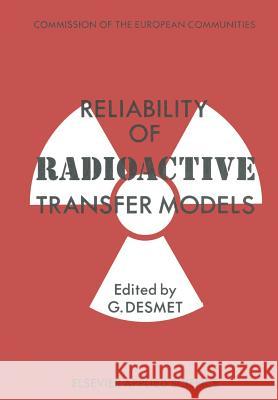Reliability of Radioactive Transfer Models » książka
Reliability of Radioactive Transfer Models
ISBN-13: 9789401071109 / Angielski / Miękka / 2011 / 356 str.
Assessment of the radiological impact of planned or existing practices involving the (actual or potential) release of radionuclides to the environment are largely based on the use of modelling techniques which allow prediction of the relationship between environmental levels and releases and the associated radiation dose to man. Models are imperfect means of representing environmental transfer processes, and it is essential to know the reliability which can be associated with the predictions of these models for each and every assessment situation. Such information is necessary in order to establish confidence in model predictions and, in particular, to allow adequate safety margins to be set in the design of nuclear facilities. This knowledge is also a prerequisite to determine release limits or to decide whether further research is justified in order to improve predictive accuracy. Therefore a number of distinguished pilpers have been presented during this workshop which focused both on practical aspects of variability of observations of facts occuring in nature, but also on learned aspects of the science of statistics. It is not very clear, however, whether much insight in mechanisms is gained by such an approach. This insight is probably rather reached by a straightforward judgment of the quality of the primary data and by the willingness to think over carefully the experiments and measurernents before doing them. The book is composed such as to give the reader the chance to quietly study the presented papers in good order.











